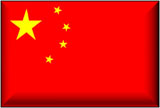Ihr Partner zum Investieren in China : China investieren, Business in China, Beratung über China, in China investieren, Internationalisierung KMB in China
New Regulations for Representative Offices in China
The State Administration for Industry and Commerce (“SAIC”) together with the Ministry of Public Security issued, on January 4th 2010, a Circular regarding further strengthening the administration of registration and permanent representative offices of foreign enterprises in China.
The State Administration for Industry and Commerce (“SAIC”) together with the Ministry of Public Security issued, on January 4th 2010, a Circular regarding further strengthening the administration of registration and permanent representative offices of foreign enterprises in China. The Circular aims to stop false applications for the establishment of Representative Offices, tightening the requirements on the entry thresholds of representative offices of foreign companies. Besides, the State Administration of Taxation (“SAT”) issued, on February 2010, the Circular no. 18, which establishes that the ROs are obliged to keep accounting books and records and are subject to taxation according to the methods established by the new law. These taxation commitments further make RO’s establishment becoming more difficult than in the past. A representative office has no legal personality but it is inexpensive to set up, so it should be a good solution “to explore the market” by foreign investors. Representative office often engages in market research and in establishing contacts with prospective customers and partners; it may only engage in non-profit making activities. Local branches of SAIC are empowered to penalize an RO for "operating without business license", if the RO should be regarded as engaging in operating activities and collecting funds through various means. With the new rules, stricter documentation requirements for registration, amendments and extensions of certificates for representative offices are required: upon the establishment, or when filing for a change of name, a representative office must submit the certificate of incorporation for its offshore parent company, indicating that the offshore company has existed for no less than two years. Besides, the representative office must submit a capital credit certification issued by a financial institution with a relationship with the offshore Company. Both the certificate of incorporation and the capital credit certification must be notarized by a notary office in the country where the offshore company is registered and legalized by a PRC consular post . When applying for an extension of a registration certificate, the representative office must also submit current proof of the existence of the offshore company. According to the Measures, registration certificates for any representative office will only be valid for one year. The number of representatives (including the chief representative) at a representative office is now limited to four. Existing ROs with more than four representatives can only de-register their existing representatives and are not allowed to appoint new representatives. The Notice now requires the local Administration of Industry & Commerce offices (“AICs”) to conduct on-site inspections of representative offices within three months after the issuance of registration certificates. Besides, the State Administration of Taxation (SAT) issued, on February 2010, the Circular no. 18, which establishes that the ROs are obliged to keep accounting books and records and are subject to taxation according to the methods established by the new law. These taxation commitments further make RO’s establishment becoming more difficult than in the past.
Dienstleistungen
Unser breiter Network ermöglicht ein ausführliches Angebot an Beratungsdienstleistungen zur Investition in China. Wir helfen bei der Internationalization vom SME in China:
Die Gesellschaft
Unsere Beratungsgesellschaft unterstützt völlig in allen Schritten den Kunden, der in China investieren will. Dank unsereR professionellen Mitarbeitern und des breiten strukturierten chinesischen Network – “Guanxi” genannt – ist das alles möglich. Das erlaubt den Betrieben ( speziell das SME ), das Risiko und die Probleme zu unterbreiten, die bei einer Investition in China möglich sind.





